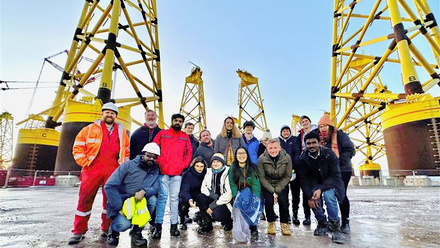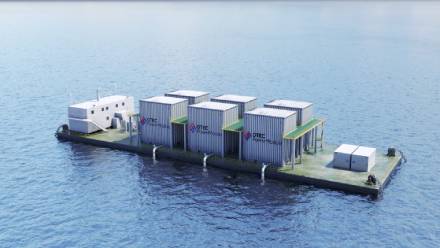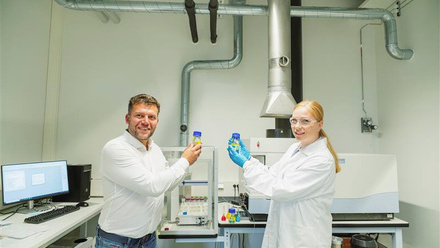Belfast Harbour spearheads port automation plans
Helping to boost efficient, sustainable and affordable operations, the famous harbour is investing heavily.
Belfast Harbour is putting money into a number of autonomous technology innovations and a crucial phase of this is the feasibility study into how it can help port operations across the country. Belfast Harbour has joined forces with digital solutions provider Aidrivers Ltd and container port operator BCT Ltd in order to trial new autonomous technology for terminal tractors (TTs).
November 2024 saw the trials begin, with approximately £400,000 provided by the Department for Transport’s Smart Shipping Acceleration Fund. The trials continue to assess the practicalities of using autonomous technology as a means of saving costs, while boosting sustainability and efficiency. Existing TTs have been augmented by autonomous hardware and software for use in tasks such as container transportation. By fitting new tech onto existing machinery, a major aim is for fleet operations to achieve up to 30% fuel efficiency.
Laura O’Neill, Digital Transformation Manager, Belfast Harbour, added that this study would also aim to “reduce the amount of time TTs are idle, increase throughput of containers and investigate the potential for higher skilled jobs”.
“The project is part of Belfast Harbour’s commitment to building a sustainable future and further enhances our ESG credentials by partnering with key tenants to help them address Scope 3 emissions,” O’Neill explained.
The autonomous technology angle is part of Belfast Harbour's bigger investment picture. Over the next five years, £313 million is to be put into improving and developing the port and harbour estate.
Other plans include a new deepwater quay to accommodate both large-scale cruise ships and wind turbine assembly and installation. Phase one of this project is expected to be complete by 2028, with phase two following suit by 2030. The aim of the quay is twofold: to boost cruise ship tourism and wind farm productivity in the region, as a clean energy means of attaining net zero environmental targets.
Beyond Belfast
Belfast Harbour's automation plans have coincided with a recent initiative to create an AI safety and efficiency solution for UK ports across the board.
The University of Cambridge has secured funding for the PALLETS (Proactive AI-powered Solutions for Logistics Efficiency, Transparency and Safety) project. UK Research and Innovation (UKRI) have put money into PALLETS, with the view to using AI technology to not only lower adoption barriers for transport and logistics industries, but to boost transparency and safety levels.
With greater interest in adopting AI and automation for port efficiency, safety and sustainability, Belfast Harbour's feasibility study into this sector is proving timely.
The harbour is also working with the Belfast 5G Innovation Region (5GIR) programme, which is run by Belfast City Council's City Innovation Office.
The 5GIR programme is designed to support adopting 5G and other advanced wireless networks in Belfast. As a means of hastening automated port operations, Belfast Harbour is using 5G technology to boost digitised bulk freight handling and safety improvements.
Discussing the feasibility study, Belfast Container Terminal Ltd spokesperson, Alec Colvin, explained that it marks a “critical step in implementing autonomous TT solutions in UK regional ports, leveraging local expertise and technology to deliver environmental benefits, cost savings, operational efficiencies, and support for resilient supply chains essential for national and global trade”.
“The project not only supports the UK’s clean energy transition goals but also enhances port competitiveness, resilience against labour shortages and economic viability for manufacturers,” he concluded.
Tell us what you think about this article by joining the discussion on IMarEST Connect.
Image: Belfast Harbour back in 2021; credit: Shutterstock.





